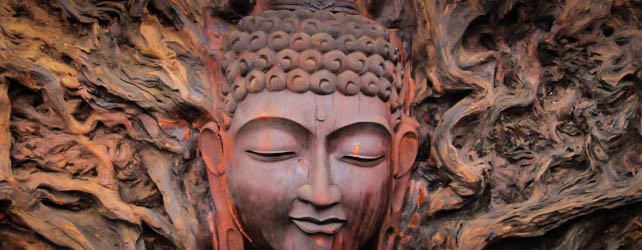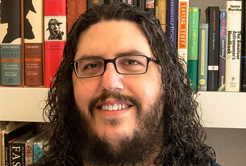This blog entry written by Jay Lake is…remarkable. (Sad, but remarkable.)
I’m not sure I’ve seen someone put into words what it’s like to stare death in the face as well as Lake.
The Instant Sage
It’s weird being around a dying person. Many people seem to think the dying have the answers to all that ails the living. Maybe it’s because many people like easy answers, or at least inspiration — even at the expense of one on their way out for good. Get a disease that marks you as dead and, the closer you get to the end, the more “wise” some people may see you.
All it takes is a life-threatening illness to be seen as someone with the big insight!
The Enlightened One
I cared for my sister when she was dying from cancer. At clinics and hospitals, I noticed people around us who weren’t dying looking at my sister with a weird mix of pity and sadness…but also like she had answers. People who worked up the courage to talk to her treated her as though she could give them an answer that would make their lives better while her life continued to decay. It’s as if people believe once one knows they are dying, suddenly a flood of wisdom falls into their heads (tucked in between all the tumors in my sister’s case) just waiting to be dispensed.
If I tell a person, “It’s important to appreciate the little things in life,” they might nod and say, “Yep!” But coming from my sister during the years she had cancer, the very same phrase carried weight to those who spoke with her. They might not change a thing about their lives, but in that moment as they nodded and swore they’d take that to heart, it was clear they were sincere if nothing else.
A Matter of Perspective
The dying aren’t necessarily wise — at least no more or less than anyone else. My father also died from cancer. In the time leading up to his death, he partied harder than ever and ran himself more ragged than the disease that consumed him. There was no wisdom to dispense because he knew what was coming and he did what he could to have some wild memories before his memories were no more.
If you didn’t read the Jay Lake post I linked to above, here’s what he has to say about dying and wisdom:
It doesn’t grant me any special wisdom or insight, but it does give me perspective.
In dying, I’d dare say Jay Lake is living more than most people I know. He’s traveling, seeing people he loves, and doing what he can to keep going until he can go no more. I’m sure perspective factors into that, but from what I can see, he’s continuing with the life he’s always lived. Call it wisdom, perspective, or something else — but most of the people I’ve seen marked for death continued their lives mostly the way they lived them. In whatever perspective comes to them, they see that the wild notions of skydiving, climbing mountains, and finally mastering the street luge isn’t going to happen with a body pumped full of Cisplatin.
And yet, people still rush about and stress and find it hard to relax, even though the dying ones tell us to take it easy. Don’t work so much overtime
. Spend time with people you love. Do some things you enjoy that you can repeat. Challenge yourself with something bigger now and then, but more than not, sustain a happy life before it’s too late.
That’s what the dying tell us.
And so many — including those who seek whatever perspective the dying have — nod in the moment and then go back to their hurried pace before encountering another dying seer.
The Wisdom of the Dead
When my sister died, many of her friends read this poem she wrote:
I am a tapestry of all the people
Who have touched my life.
Good or bad, they’ve given me something
And I hope that I’ve given in return.Rainbow people, in pastel hues,
Lend me their calm tranquility,
Their love of all things that the sun
Kisses with golden hand.
People of vibrant purples and reds
Offer passion and conviction in their beliefs and causes.So many different colored threads to be woven,
Day by day and warp by warp.
I hope when my work is finally over
And I can show the end result,
That I have done justice to you all
And the wonderful gifts you’ve given me.
The poem seems to indicate that maybe there is a flood of wisdom reserved for the dying, an uncanny ability to know what the living need to hear. Clearly my sister is saying thank you to those who helped her and hoping she gave something to those who knew her in return. (She is.) The funny thing about his poem? It was written in 1989, long before my sister was sick.
We don’t need to talk to the dying for the answers we already carry with us; we all know what we need to do. The tragedy comes when we choose to act when it’s too late…

